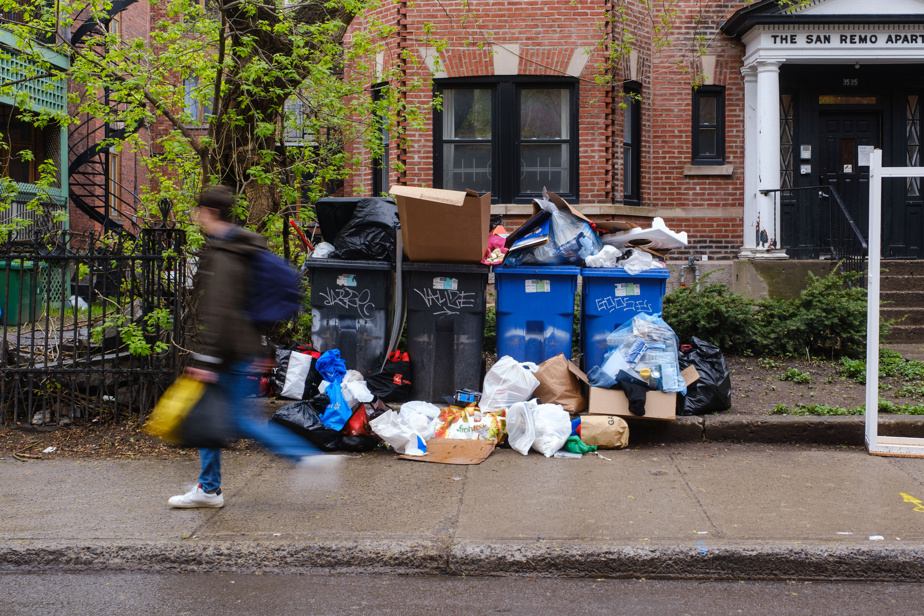In the “Ghetto McGill”, very close to the university of the same name, the problem is particularly glaring. Many students leaving Montreal do not bother to take the contents of their accommodation or respect the schedules for the removal of garbage and bulky objects. Mattresses, dressers, chairs, sofas, pots, sports equipment, books and bags overflowing with clothes litter the edges of the streets. “It’s like this every year, it’s really disrespectful,” commented Greg Howard, who has lived in the area for over 25 years.
“Heaps of clothes, garbage bags, furniture left at the curb, these are wild dumps,” said Philippe Sabourin, spokesperson for the City of Montreal. “We have inspectors who roam this territory at this time of year because it is always the same scenario. But the problem is that we rarely have evidence, so we cannot issue statements of offense, unless we catch the person in the act. »
During this period, the Plateau-Mont-Royal borough assigned a team of seven to ten blue collar workers to the Jeanne-Mance district, where the Ghetto McGill was located. Employees are ready to intervene seven days a week to pick up the piles of abandoned objects, crisscrossing the neighborhood with vans or responding to complaints made to 311, said Mr. Sabourin. Wednesday morning, while walking down Prince-Arthur, Hutchison, Durocher, Aylmer, University and Lorne Avenue, we spotted more than 25 wild dumps disfiguring the area, which blue-collar workers had not yet picked up.
During moving periods, the RebutRécup organization organizes collections in the streets to pick up objects that are still functional and usable, so that they do not end up in the dump. A home collection service is also offered. Crockery, small appliances, furniture, electronic devices, clothing, toys, books and other items are then redistributed to charitable organizations. On its website, RebutRécup indicates that a collection took place in the Ghetto McGill area from April 24 to May 1.

